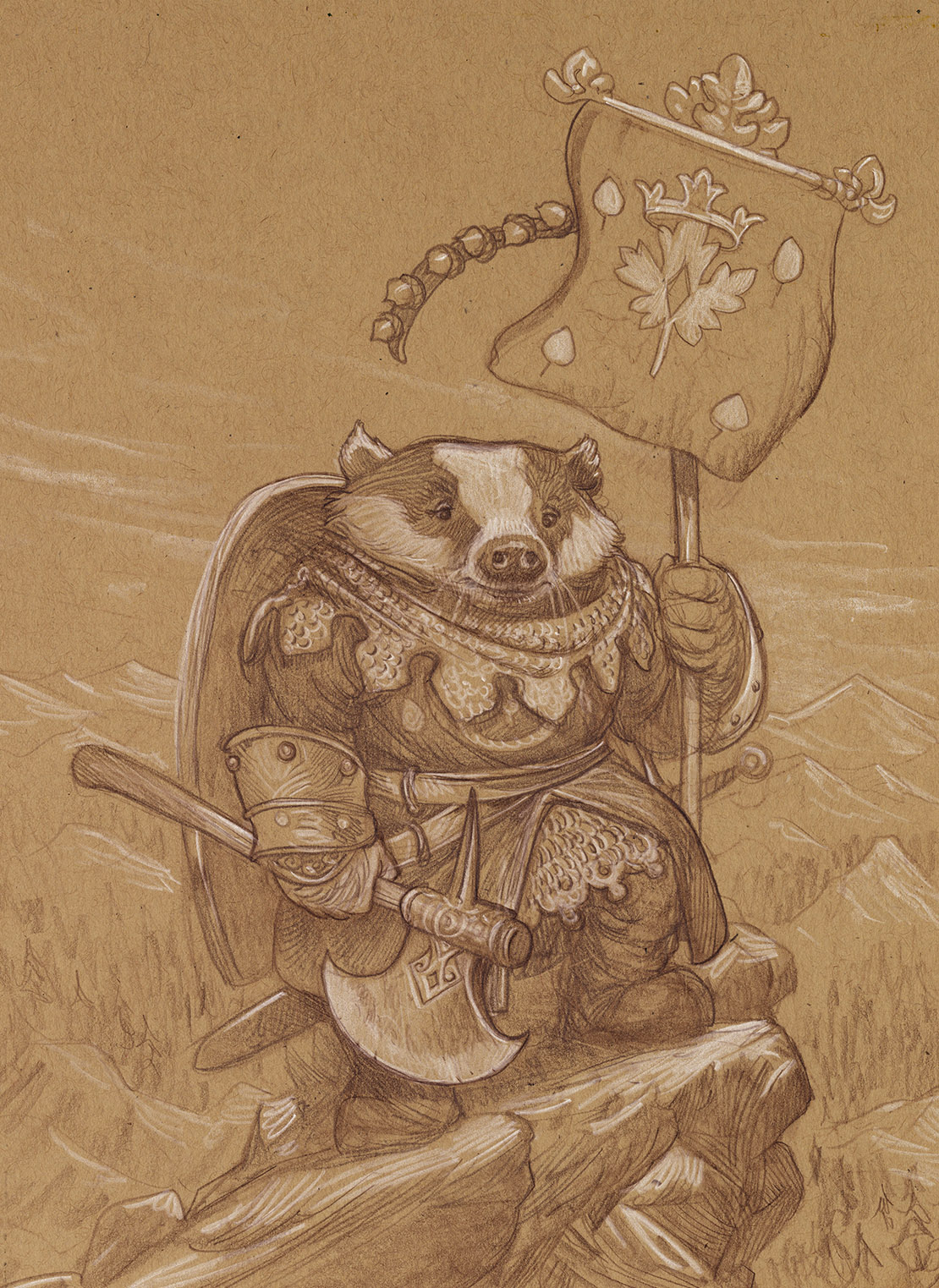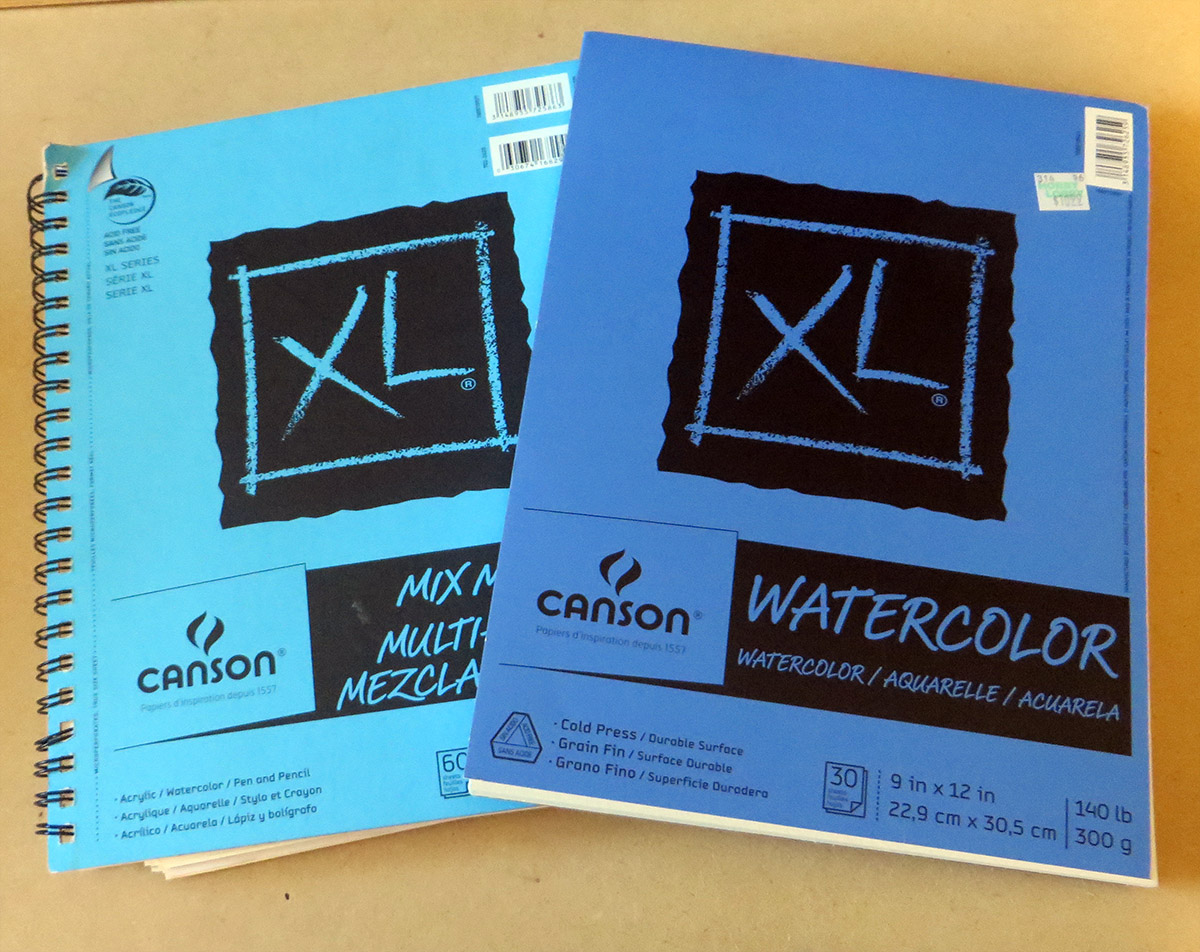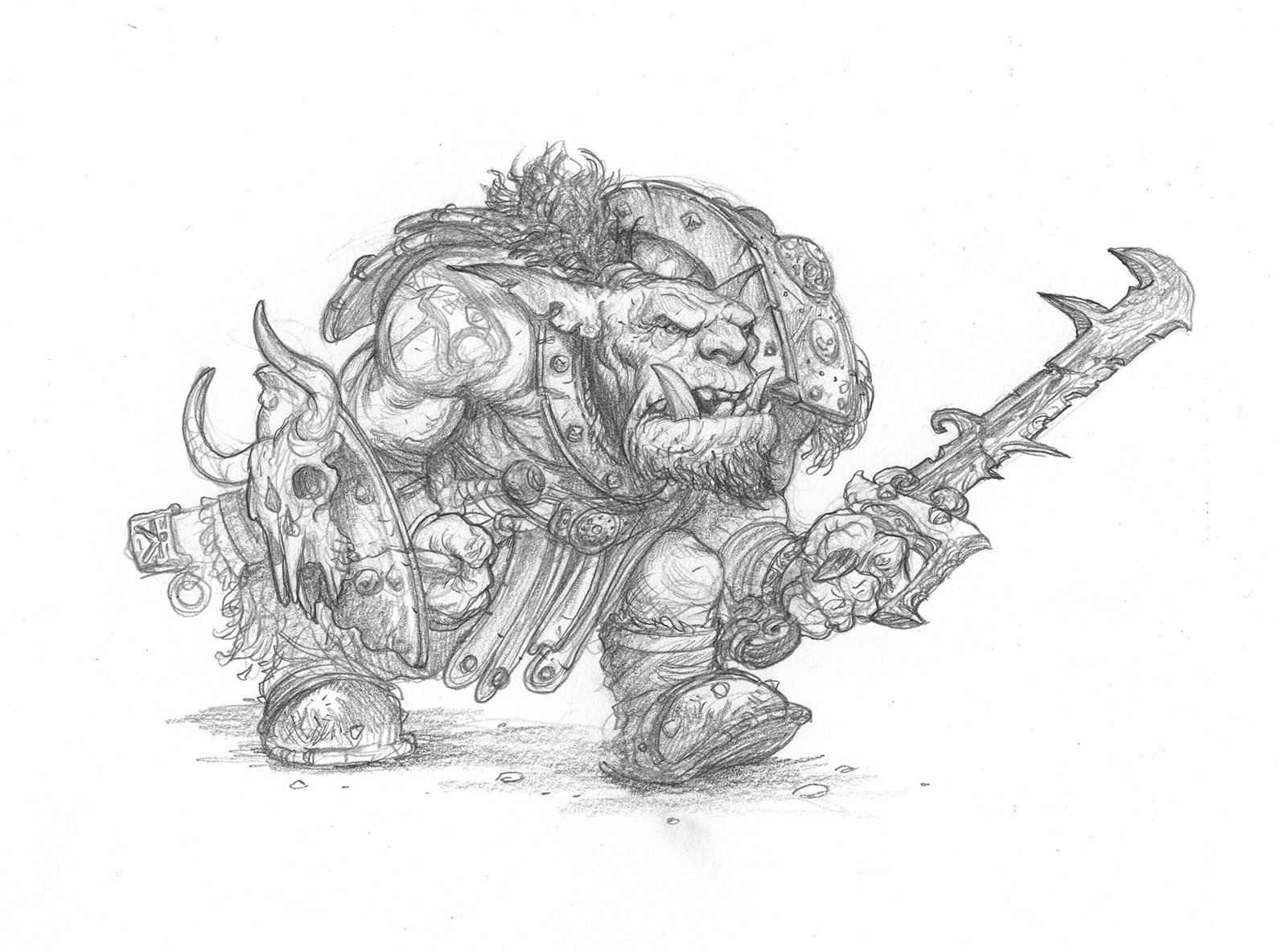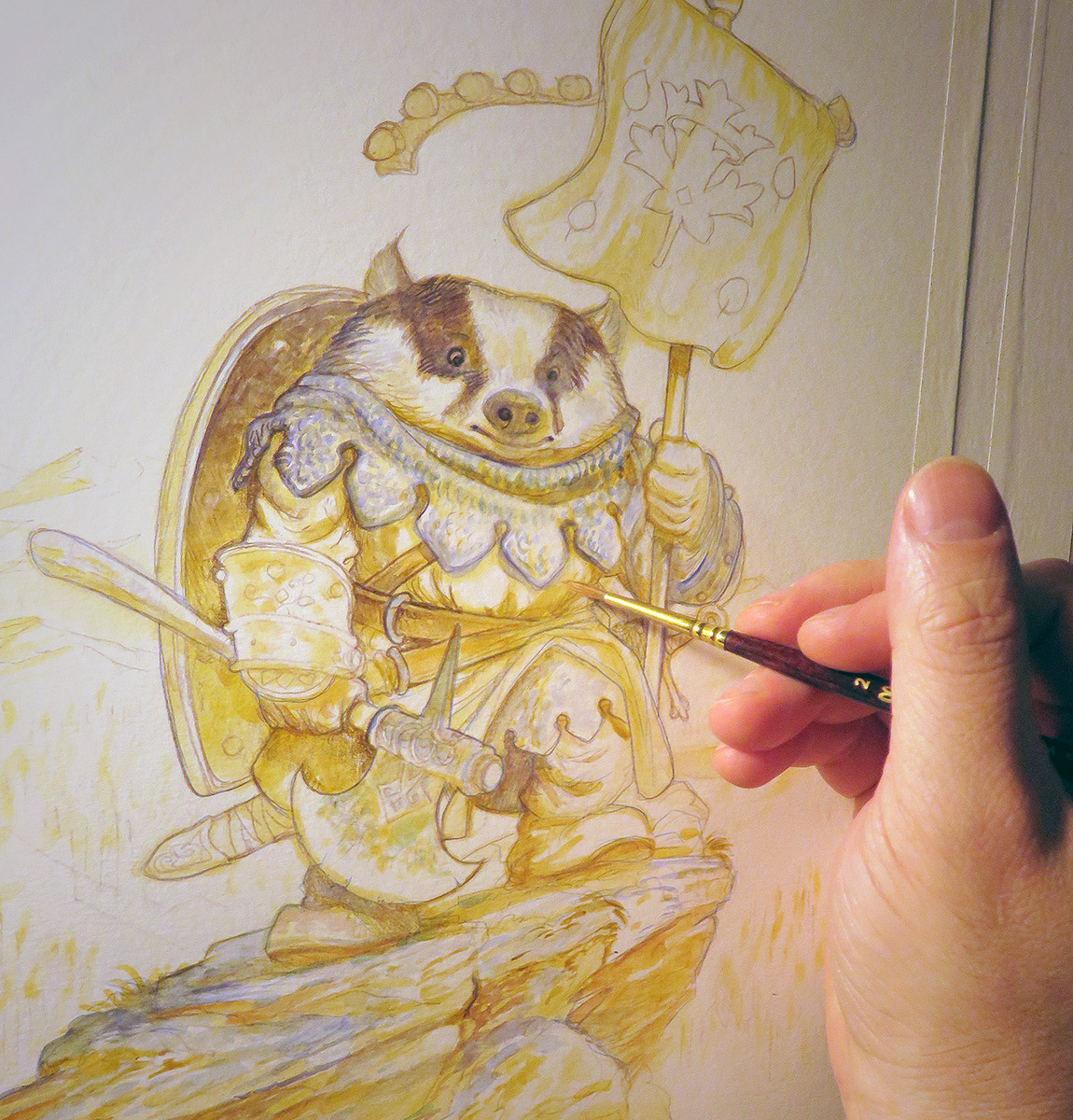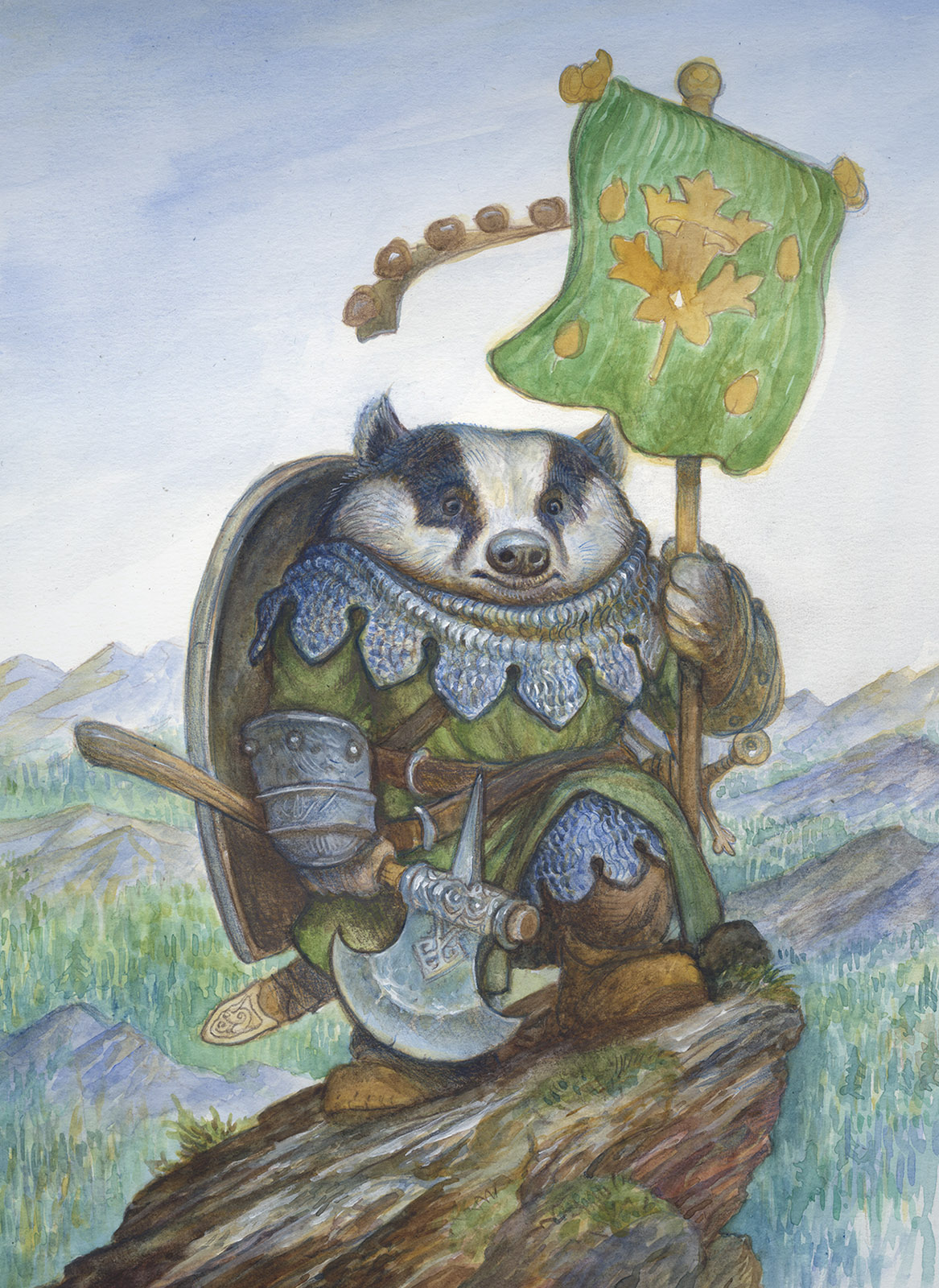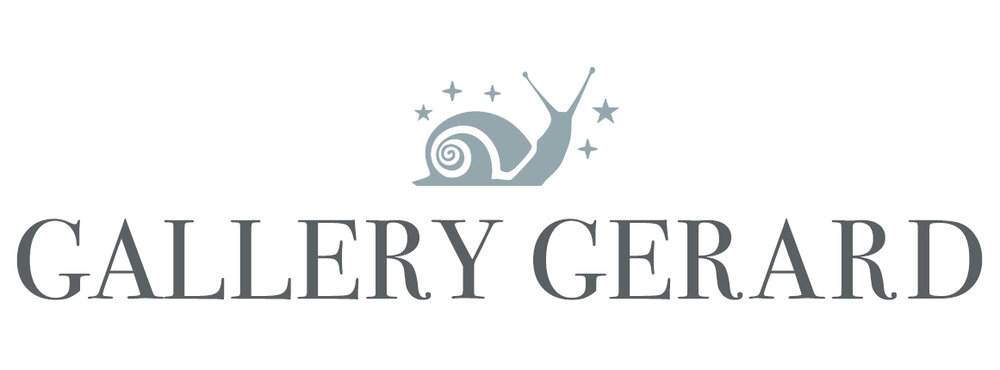By Justin Gerard
HAPPY AMERICAN ELECTION DAY. Let's not talk about it. Instead, I have a garbage review of some cheap paper for you!
I've found that sometimes, the cheapest materials out there are all you need. Like hot dogs. You don't need Châteaubriand and caviar every day. (Maybe I don't need hotdogs everyday either but let's stay on topic) In a world of spectacular art materials, a sheet of basic copy paper and a Bic pen, which together cost less than pocket lint, are still fantastic tools. Perhaps you can't paint the Sistine Chapel with them, but they are more than sufficient enough to sketch out the idea with. Being cheap doesn't always mean being bad.
Recently, like a plague of Kudzu overtaking the interstates of eastern America, I've seen more and more of these Canson XL pads cropping up anywhere that sells art supplies. And like most other aspiring artists out there, I still hold out hope that there is a secret set of materials that, if found, will do all the hard work of painting for me.
All I have to do is find it and the fountain of youth, a comfy chair, and I am set!
To this end, I often try out a lot of the new stuff, regardless of wether or not it is being marketed towards students, weekend watercolorists, or panda bears.
Canson's student grade XL series offers a variety of paper types, Bristol, Drawing, Mixed Media, Watercolor, Sketching, and so on. All of which are priced amazingly low compared to other similar papers on the market. They are also all recycled and made using sustainable means and whatnot. So you can feel smug and superior to everyone else while you draw.
I gave each of the papers a try (since they are basically free). They all feel surprisingly okay to work on and do a serviceable job at what they are marketed for. I was most impressed with the Mixed Media paper. While it has not done anything for me as far as mixed media goes, it was wonderful to draw on.
(It just seems to be poorly branded. It should probably be called, "VERY Dry Media Paper" or "Use Pencils Only Media," or "Only Self-loathing Masochists Use Watercolor On Paper Like This." I leave the exact phrasing up to Canson's Branding division.)
One of the more interesting aspects of the XL paper, is that each page offers 2 separate drawing experiences on the front and back. One side is smooth and the other offers more texture.
For testing out their wet media I picked up a pad of the XL Cold Press Watercolor Paper. I'll be honest: I usually hate cold press paper. It is often absurdly textured, as if painters only ever wanted to paint on cinder blocks or tree bark but were duped into using smooth papers by the Illuminati and Lizard people. However, Canson's XL paper is a very lightly-textured cold press, and actually feels a bit like something in between a Fabriano hot press and a more Strathmore cold press. So it works great for someone who prefers something in between.
So how does it handle?
I like how it takes pencil and I love how laying in initial colors feel on the paper. Paint goes on smooth and can be pushed and pulled rather easily. It allows a little bit of lifting out of light colors, and dark colors can be pulled out all together if you like. This is great if you don't care too much about using very wet washes and you prefer to noodle the colors around as you paint. (As someone who probably applies too many washes this is annoying, but that is why I tend to work on vellum bristol over cold press papers in general anyway). Bottom line: if you like watercolor paper that behaves like watercolor paper, it does the job.
VERDICT:
As far as a purely watercolor paper goes, Canson's XL cold press paper is a lot fun and I would recommend the paper if you are looking for something basic and affordable to work with every now and then.
If you plan on painting the Sistine Chapel, I might recommend some of the heavy hitters of the watercolor world, but at a tenth of the price, this is a great alternative.
If you do want to try some of the more expensive papers with similar feels to them, try out Fabriano's 300g Hot Press paper, Strathmore's 500 series illustration board for wet media, and Canson's own Montval Cold Press.
----
Note 1: In closing, I should note here: Materials are important, but they aren't THAT important. A good artist could work on anything, even tree bark and it would still be impressive. But what materials can do is make your life easier and may allow you to better play to your strengths as an artist. However, there is no silver bullet or secret formula that can make up for lack of practice and technical ability.
